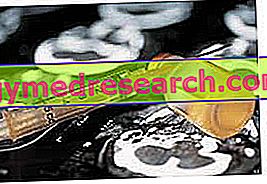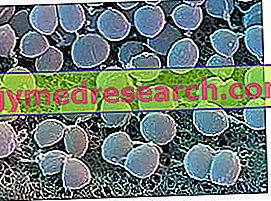Definition of drug addiction
The terms "drug addiction" or "drug addiction" refer to a serious pathological condition in which the individual who is affected perceives the urgent need to take a given substance (usually opioids or over preparations of abuse), regardless of physical damage, psychological and social that this causes him.

However, it is necessary to point out that drug addiction cannot and must not be referred only to the so-called narcotic substances: in fact, even smoking and alcoholism are some equally dangerous variants. Furthermore, drug addiction can also depend on the continuous administration of medicines to treat an underlying disease: this is the case of drugs for the treatment of hypertension or for the treatment of depression, whose frequent use - even if taken within the recommended doses - can induce addiction; clearly the "dependence" in question cannot be placed on the same level as that derived from the abuse of illegal drugs: the dependence on a drug must be seen only on the physical level (abstention from the drug creates physical damage), while the addiction to opioids and other illegal drugs is psychological (above all) and physical, accompanied by a series of catastrophic side effects.
Common elements in drug addiction are abstinence, caused by the sudden suspension of the substance, and tolerance, in which the body requires an ever-increasing dose of that given drug to achieve the effect of the much desired euphoria.
Drug addiction can cause short and long term damage, including health, psychological and social disorders.
Causes
Talking about causes that cause drug addiction is rather obvious: the person is driven by the desire to take a certain substance of abuse to get pleasure and euphoria, even though he knows (often) what he is up against. Many former drug addicts tell that drug addiction began as a game, as a challenge, as a transgression, driven by the conviction that "you can stop as you want": certainty, this, which turns out to be wrong right from the first recruitment. It seems incredible, but the brain, in contact with drugs, is altered in its ability to perceive pleasure, triggering a series of obsessive-compulsive mechanisms, which prove to be literally ruinous for the subject, who, driven by necessity to take that drug again, it ends up ruining his life.
In some individuals we observe an innate tendency to abuse drugs because they are genetically predisposed: this does not mean that every child born of a toxic mother and / or father will surely become such in adulthood, although it is evident that these children register a propensity greater to drug addiction than those born to healthy individuals.
Even the environment and the companies can paradoxically affect drug addiction: those who live in infamous environments or frequent companies whose alcohol, smoking or drugs abuse is high, is predisposed to fall into the same vortex. Here too it is right to point out: homo faber fortunae suae, in the sense that it is up to the individual to do what he deems right in his life, so even if he attends "wrong" companies he must be able to choose what is right to do from what it is not.
We are the cause of drug addiction!
Substances of abuse
Up until this point in the disquisition we have only talked about "substances of abuse", referring in general to illegal substances, alcohol, smoking and some drugs. Now let's see in detail what the most commonly abused substances are:
- Stimulants of the central nervous system: cocaine, amphetamine, right-amphetamine, methylphenidate → tolerance
- Hallucinogens: mescaline, phencyclidine (or angel powder), psilocybin, LSD (powerful psychedelic substance) → hallucinations of variable intensity
- Sedatives and anxiolytics: barbiturates, benzodiazepines, spirits → dependence
- Opiates and painkillers: heroin, opium, codeine, hydromorphone, oxycodone, meperidine → sedation alternating with euphoria and drowsiness.
- Marijuana and hashish
What should make us think, in addition to the intrinsic drama of the condition, is that the animal not endowed with reason (from the laboratory) initially tends to reject substances such as LSD and amphetamines, when they are placed in front of it, while man - therefore the animal able to reason - even research obsessively.


